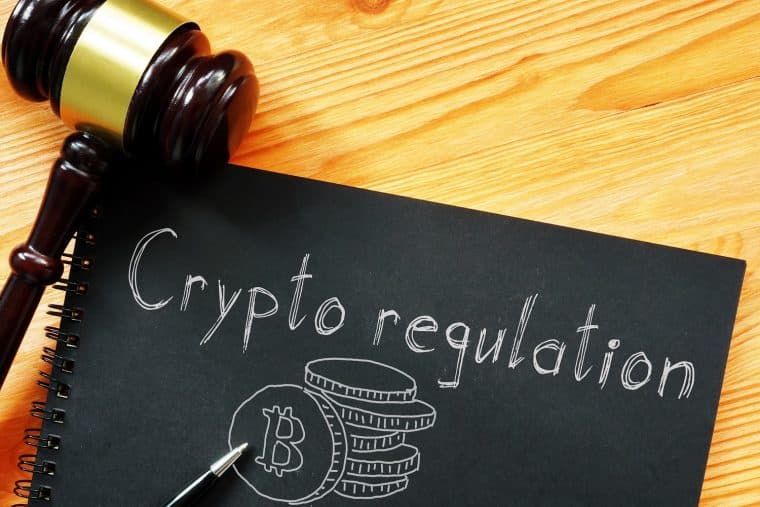
Coinbase, which went public in the United States two years ago, suggested Tuesday that it may consider leaving the nation. Speaking at the Innovate Finance Global Summit yesterday, company’s CEO Brian Armstrong expressed that due to the lack of clarity surrounding cryptocurrency regulation in the U.S., “all options are being considered, encompassing the possibility of relocation,” according to The Telegraph.
As the cryptocurrency market experiences a bit of volatility today after its first quarter comeback, the U.S. faces a puzzle in the realm of crypto regulation. Will the nation’s regulatory ambiguity drive crypto firms to seek greener pastures abroad? The answer lies in the complex interplay of market resurgence, regulatory challenges, and global competition.
The year 2022 was a rough one for the cryptocurrency market, marked by the FTX collapse that left investors reeling. Yet, like a phoenix rising from the ashes, the market has rebounded with vigor. Bitcoin and Ethereum, the two behemoths of the crypto world, have seen their values soar by 76% and 66% year to date, respectively.
The bear market is officially over. $BTC made it's first higher high ($25,212) since the all time high . That confirms a new bullish trend. Price can still go down, but that would be a new trend, not a continuation of the previous bear market. Congrats everyone. pic.twitter.com/Y4Mzl906s5
— The Wolf Of All Streets (@scottmelker) March 19, 2023
“Consumer confidence never left globally,” remarked Sheila Warren, CEO of the Crypto Council for Innovation, highlighting the resilience of the industry.
Navigating the U.S. Crypto Regulation Labyrinth
Despite the market’s 2023 recovery so far, the shadow of regulatory disruption looms large. The collapse of the crypto exchange FTX last fall sent shockwaves through the industry, exposing the vulnerability of the cryptocurrency markets.
“The collapse of FTX last fall, and the subsequent shockwaves it sent throughout the crypto sector, revealed that the status quo is simply untenable,” testified Lee Reiners, a finance lecturer at Duke University, before the Senate Banking Committee.
The hearings have spurred a flurry of regulatory proposals, but the lack of consensus has left the industry grappling with uncertainty.
The debate over crypto regulation in the U.S. is fraught with complexity. Cryptocurrencies straddle the lines of investment tools and currencies, and mixed messages from Congressional hearings have left the industry in a state of flux.
Ron Hammond, a lobbyist for the Blockchain Association, criticized the haphazard approach to regulation, noting that the SEC and CFTC “don’t even agree with themselves exactly which regulation makes sense.”
The uncertainty of government bodies has left a sense of confusion, leading some companies to launch their startups in Paris, England, Lisbon, and Singapore, where “they at least know the rules of the road,” according to Hammond.
As Congress grapples with the intricacies of crypto regulation, stablecoins have emerged as a potential area of focus. Rep. Patrick McHenry (R-N.C.), chair of the House Financial Services Committee, has prioritized stablecoin regulation, and the Biden administration has echoed these concerns.
Biden administration considering regulating stablecoin issuers as banks – WSJ https://t.co/5wQ059vcr7 pic.twitter.com/5zOwZzACMX
— Reuters Business (@ReutersBiz) October 2, 2021
“Stablecoins are a pretty common bridge between crypto and traditional finance,” Hammond explained. In the meanwhile, Reiners advocates for a measured approach to regulation, likening it to a “tortoise and hare situation” where “the important thing from a regulatory standpoint is that we get it right.”
The Great Crypto Migration
The uncertainty surrounding crypto regulation in the U.S. has also sparked concerns of a potential “brain drain” of developers. A study by crypto firm Electric Capital found that the proportion of crypto developers residing in the U.S. has decreased from 40% in 2017 to 29% currently.
Sheila Warren decried the “antipathy to crypto” as a “uniquely American phenomenon,” but Lee Reiners remains skeptical, suggesting that claims of brain drain may be “exaggerated” and used to “motivate lawmakers in the U.S. to pass a regulation that’s favorable to the interests of the industry.”
5/5
PS – as a dual citizen I want to see the US embrace crypto, but if it doesn’t, this should serve as a warning to policy makers, other countries are coming for that talent and it’s going to be a brain drain.
— Adam Cochran (adamscochran.eth) (@adamscochran) September 8, 2021
As the U.S. grapples with regulations, Hong Kong has emerged as an attractive alternative for crypto firms. The city’s government is keen to restore its status as a crypto hub, and the Securities and Futures Commission has proposed a new licensing framework with a focus on investor protection.
The international interest in Hong Kong’s crypto-friendly environment is noticeable. Firms from mainland China, Europe, Canada, and Singapore are eyeing the city as a haven for their operations.
Over 20 crypto and blockchain companies have informed the government of their plans to establish a presence in Hong Kong, with over 80 firms expressing interest.
It is in the context of the U.S. risk of losing its competitive edge in the crypto sector that Reiners offers a perspective that shifts the focus from regulatory maneuvering to the essence of innovation. He believes that the industry should focus on “building tools, products, and services that people actually enjoy and find useful,” regardless of the regulatory landscape.
Ultimately, the ability to strike a balance between effective regulation and encouraging advancements will be crucial in steering the industry toward a future that embraces the potential of cryptocurrencies.
Related:
-
Crypto Growth in Hong Kong – Kaiko Latest Top Firm to Join the Rush as US Crackdown Spurs Interest
-
UK Eyes ‘Agile and Proportionate’ Crypto-Specific Regulations to Fulfil Global Hub Goals
-
China to Strengthen Digital Economy Regulation, PBoC Deputy Governor Highlights US Failures
Wall Street Memes (WSM) - Newest Meme Coin
- Community of 1 Million Followers
- Experienced NFT Project Founders
- Listed On OKX
- Staking Rewards